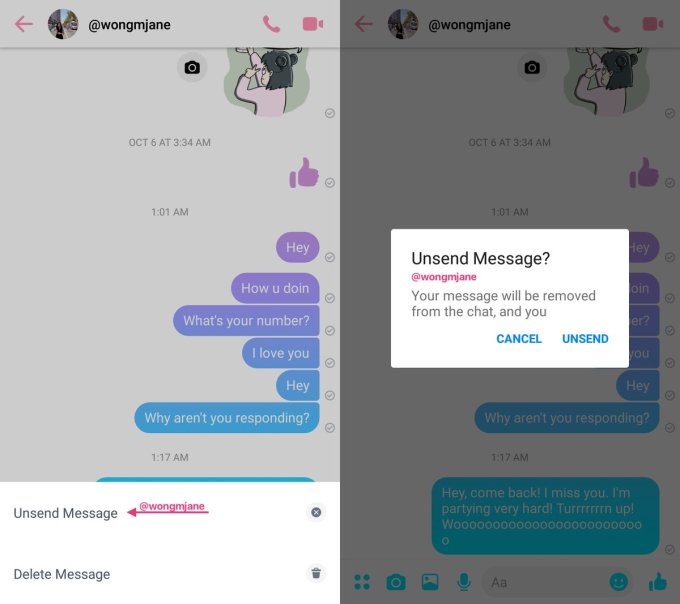In April, TechCrunch broke the news that some of Mark Zuckerberg’s Facebook messages were deleted from recipients’ inboxes in what some saw as a violation of user trust. Then, Facebook suddenly announced that it would actually build this Unsend functionality for everyone. Then six months went by without a peep about the feature, furthering suspicions that the announcement that it would release an Unsend button was merely a PR driven response to the scandal.
Late last week, TechCrunch asked Facebook about its progress on Unsend, and the company told us “Though we have nothing to announce today, we have previously confirmed that we intend to ship a feature like this and are still planning to do so.”
Now we have our first look at the feature thanks to TechCrunch’s favorite tipster Jane Manchun Wong. She’s managed to generate screenshots of a prototype Unsend button from Facebook Messenger’s Android code. Currently, you can only delete messages from your own inbox — they still remain in the recipients’ inbox. But with this Unsend feature, you’ll be able to remove a message from both sides of a conversation. However, the code indicates that in the current prototype, users may only have a certain amount of time after they send a message to unsend it.

The Unsend feature could be useful to people who say something stupid or inappropriate, disclose a secret they shouldn’t have, or want to erase evidence of their misdeeds. That could make users more comfortable speaking freely on the app, since they know they can retract their texts. But it could also open vectors for abuse, as users could harass people over Messenger and then delete the evidence. Facebook will need to ensure that Unsend doesn’t acceidentally become a weapon for bullies.
from TechCrunch https://ift.tt/2pOJNAX







0 comments:
Post a Comment